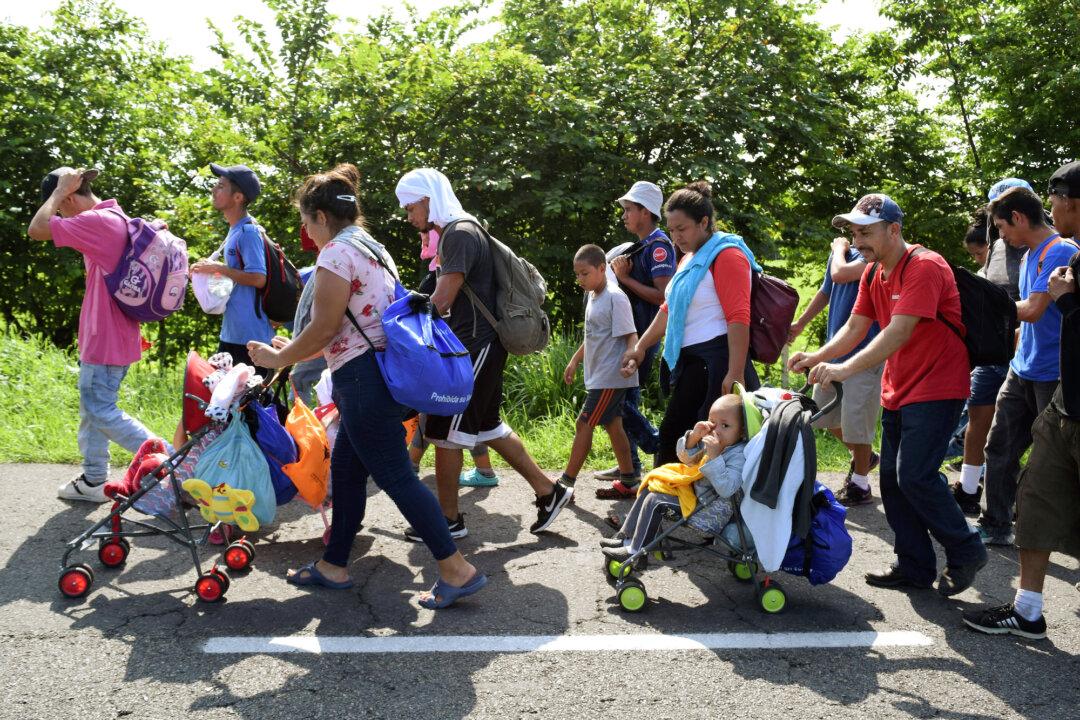President Donald Trump’s administration has introduced a rule severely restricting asylum claims for migrants traveling north through Mexico to the United States.
The rule was set to be published in the Federal Register on July 16.


President Donald Trump’s administration has introduced a rule severely restricting asylum claims for migrants traveling north through Mexico to the United States.